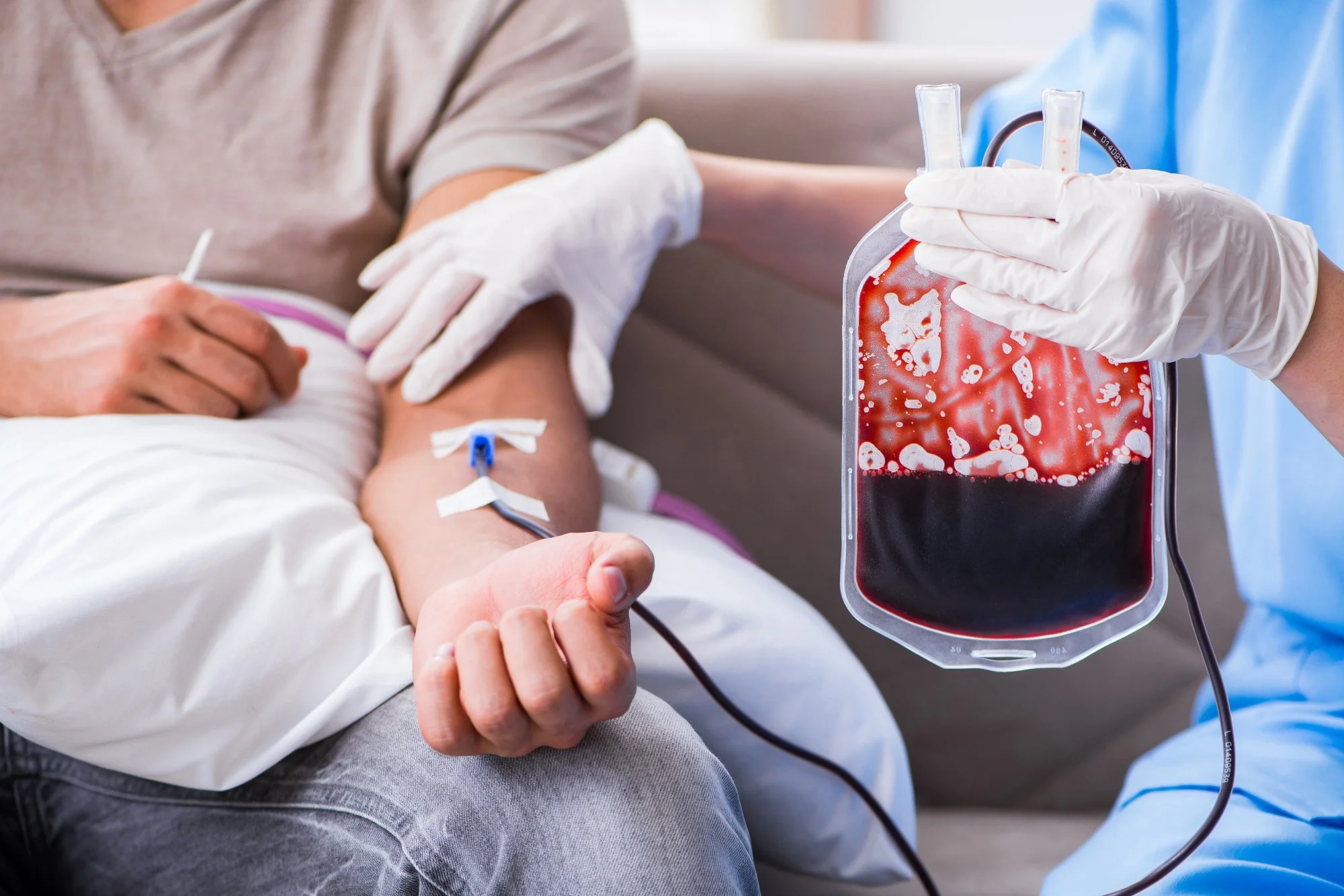
We all get tired. But some fatigue doesn’t lift, even with rest or sleep. It lingers quietly. Morning energy never arrives. Coffee doesn’t help. You cancel plans without knowing why. It feels like your body is dragging something invisible. Fatigue that doesn’t go away might mean something deeper. Blood conditions often show up this way first.
Bruises appear without any obvious injury
Not every bruise is innocent. Some seem to arrive out of nowhere. They darken quickly. Or last longer than usual. You can’t remember bumping into anything. These unexplained bruises raise questions. Especially if they appear in clusters or sensitive areas. Bruises appear without any obvious injury. A hematologist can help determine the cause.
Frequent infections may signal a deeper imbalance
Your body might be working harder than it should. Minor infections become frequent. Recovery takes longer. You notice persistent sore throats. Mouth ulcers reappear. A common cold lasts weeks. These can reflect issues with white blood cells. Frequent infections may signal a deeper imbalance. Blood health plays a role in immune response.
Bleeding gums or nosebleeds without clear reason
Gums might bleed every time you brush. Nosebleeds happen without trauma or dryness. It feels like your body can’t stop small bleeding events. If it happens regularly, it’s not random. Platelet issues or clotting disorders may be involved. Bleeding gums or nosebleeds without clear reason need medical attention.
Feeling cold even when others aren’t
Your fingers stay cold in warm rooms. Layers don’t seem to help. You avoid air conditioning. It’s not about external temperature. Blood flow and oxygen levels could be factors. Anemia is a common cause. Feeling cold even when others aren’t may be a subtle sign of blood-related issues.
You’ve had abnormal blood test results more than once
One off result might not be urgent. But when labs repeat odd numbers, something is going on. Low hemoglobin. High platelets. Unusual white blood cell counts. These are early alerts. A general practitioner might overlook patterns. You’ve had abnormal blood test results more than once. A hematologist reads between the numbers.
You have a family history of blood disorders
Genetics influence blood health more than people realize. Conditions like thalassemia, sickle cell, or clotting problems can pass quietly. Symptoms might not appear until adulthood. Early screening changes outcomes. You have a family history of blood disorders—don’t wait for symptoms to worsen. A hematologist can assess your risk.
Unexplained weight loss with no changes in diet
You’re eating the same, maybe even more. But the numbers drop. Pants feel loose. Friends comment. There’s no new workout plan. No effort to lose weight. Sudden loss without intent raises concern. Some blood cancers present this way. Unexplained weight loss with no changes in diet isn’t something to ignore.
Skin turns pale or yellow without reason
The mirror shows something’s off. Your skin looks lighter than usual. Or there’s a yellow tinge. It’s not lighting or makeup. You check your eyes—same color shift. These are signs tied to red blood cells and liver function. Skin turns pale or yellow without reason. A hematologist checks what’s underneath.
Swelling or pain in the legs that won’t go away
Your legs feel heavy. Or sore. Sometimes one swells more than the other. You think it’s standing too long. But it keeps happening. Sitting doesn’t relieve it. Deep vein thrombosis is a possibility. Clotting disorders often begin this way. Swelling or pain in the legs that won’t go away can be serious.
You’ve had multiple miscarriages or pregnancy complications
Some women experience repeated pregnancy losses with no clear explanation. Testing finds nothing. But the issue may involve clotting. Blood that clots too quickly can block nutrients to the fetus. You’ve had multiple miscarriages or pregnancy complications—this deserves a closer look. Hematologists often uncover what others miss.
Bone pain that’s hard to locate or describe
It’s not muscle soreness. It’s not joint pain. It feels deeper. Like something internal. It might move around. Or stay in one spot. Nighttime makes it worse. Bone marrow issues sometimes present this way. Blood cancers may be involved. Bone pain that’s hard to locate or describe is worth investigating.
Skin rashes that don’t improve with typical treatments
You try ointments. Antihistamines. They don’t work. The rash returns or spreads. It doesn’t itch like allergies. Or it bruises. Some blood conditions show up in the skin first. Vasculitis. Leukemia. Platelet disorders. Skin rashes that don’t improve with typical treatments aren’t always dermatological.
You’ve been diagnosed with anemia but it keeps returning
Iron supplements help—briefly. But the symptoms return. Dizziness. Pale skin. Weakness. Doctors call it “chronic.” But something’s feeding the pattern. Anemia isn’t always about diet. Sometimes it’s blood loss. Or bone marrow issues. You’ve been diagnosed with anemia but it keeps returning. That’s a red flag.
You’ve had a blood clot without a clear cause
You’re young. Healthy. No recent injury. But you had a clot. Maybe in the leg. Or the lungs. Doctors treat it, but don’t know why it happened. This is when a hematologist is essential. Inherited clotting disorders are often invisible until that first incident. You’ve had a blood clot without a clear cause—don’t wait for another.
Unusual headaches with blurred vision or dizziness
Not all headaches are migraines. Some build pressure. Or feel different. Light sensitivity may appear. Your vision blurs. Dizziness follows. These can be signs of high blood viscosity. Or clotting in the brain. Unusual headaches with blurred vision or dizziness need careful blood work.
Chronic inflammation that doesn’t respond to medications
Your joints swell. Your body aches. Anti-inflammatory medications offer limited help. The pattern doesn’t fit typical arthritis. Blood tests show high inflammatory markers. But the source is unclear. Chronic inflammation that doesn’t respond to medications may be rooted in hematologic disease.
You’ve recently started chemotherapy or radiation treatment
Cancer therapies affect bone marrow. They suppress immune function. Hematologists monitor white cell counts. Platelets drop. Infections become risky. Supportive care is essential. You’ve recently started chemotherapy or radiation treatment—your hematologist becomes a central figure in your care.
You’ve noticed bleeding takes longer to stop
A cut used to clot quickly. Now it lingers. Gums bleed longer. Shaving becomes difficult. You’re using more bandages than usual. These can indicate clotting factor deficiencies. You’ve noticed bleeding takes longer to stop. Don’t ignore the signs.
Your doctor isn’t sure what’s causing your symptoms
Sometimes blood symptoms don’t fit neatly in other specialties. You visit various doctors. Gastroenterologists. Rheumatologists. Neurologists. Tests come back inconclusive. A hematologist sees the full picture. Your doctor isn’t sure what’s causing your symptoms—that’s the right moment for referral.
